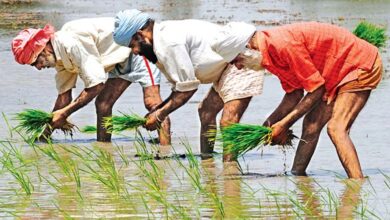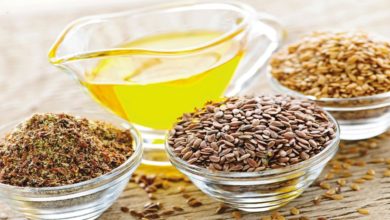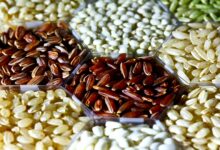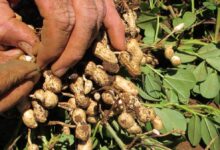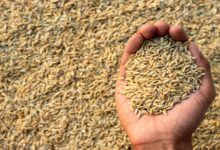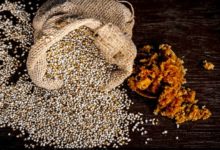Experts
PUNJAB CONTRIBUTE 18% TOWARDS NATION’S WHEAT PRODUCTION
STATE HAS 1.53% of INDIA’S GEOGRAPHICAL LAND
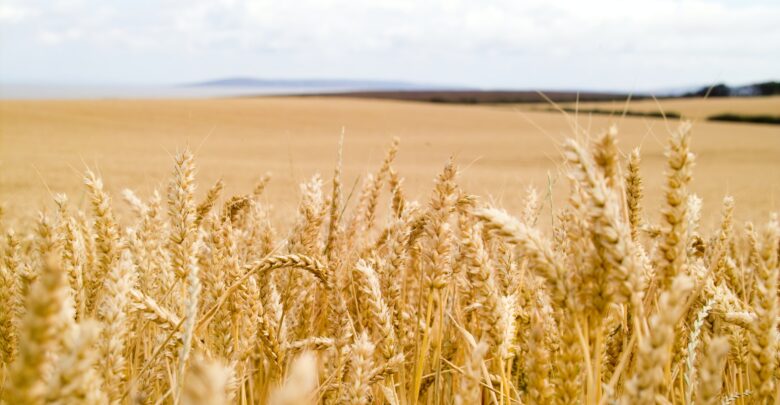
Punjab, the state to pioneer the ‘Green Revolution’ in the country, despite having only 1.53 per cent of the total geographical area of country produces about 18 per cent of total wheat production of the country.
After advent of green revolution in early seventies the Punjab farmers adopted fertilizer and irrigation responsive high yielding varieties (HYV’s) of wheat which resulted in huge jump in the area and production under this crop. Since then, Punjab is the major contributor of wheat to the central pool, thereby making country self-sufficient in wheat production.
To maintain the tempo of food grains production, the government often provides incentives for production to the farmers like increase in minimum support prices. As a result of the assured market at remunerative prices coupled with market infrastructure and available production technology, the Punjab farmers have pushed up the paddy and wheat production remarkably. Area under wheat crop in Punjab has doubled from 16.1 lakh hectares during 1966-67 to 35.3 lakh hectares in 2020-21. During the same period there is a sevenfold increase in production of wheat in the state (from 24.5 to 171.9 lakh tonnes).
The contribution of Punjab to the central pool was 63.8 per cent during the crop year 1966-67 which declined to 51.2 per cent in 2000-01. It touched to 75.3 per cent in the crop year 2005-06. During 2020-21, the state contributed 30.5 per cent of wheat to the Central Pool. The state has surpassed all its previous records of contribution of wheat to Central Pool during 2020-21. During this year it contributed 132.2 lakh tonnes of wheat to the Central Pool which is all time high. During the last decade the state regularly contributed about 65 to 70 per cent of its total wheat production towards the national food security which is commendable due to the sincere efforts put in by the hardworking farmers, agricultural scientists and extension workers of the state
MARKETING OF RABI CROPS
Due to fully mechanization of harvesting and threshing, the arrivals come in the markets within a short period. As improved technology is necessary for the assured and maximum production, similarly efficient marketing is the yard stick for maximizing the margins in the markets. Some important hints for efficient marketing of crops are given as under:
Harvesting of any crop at proper stage is highly essential for its efficient marketing. In case the crop is harvested early or it is delayed from full maturity, the quality of the grains got affected and the produce fetches lower price in the market besides fear of yield loss.
· Sometimes, the crops are threshed over a muddy/katcha floor which allows the grains to mix with dust and dirt. So, before taking such a produce in the market, it should be cleaned properly and dried well to avoid wastage of time in the market for cleaning of the produce.
· The produce should be properly graded or sorted before taking it to the market in order to realize higher prices over the ungraded produce.
· It is required that farmers should have complete information about the market before taking the produce to the market. They should know about the extent of produce arriving in the market, prevailing market prices and also about the date of entry of different procurement agencies in the market. Preferably, the produce should be taken to the market in the morning so that the farmers can return to their homes in the evening after disposal of their produce.
· The market prices fluctuate depending upon forces of demand and supply in the post-harvest period. It is, therefore, important for the farmers to be fully aware about the prices prevailing in the nearby local as well as distant markets of other states. If the prices in the distant markets are higher than the local market, the farmer can sell their produce there also. But before taking the produce to the distant markets the farmers should take into consideration the additional transportation and labour costs also.
GRADE SPECIFICATIONS
In order to realize remunerative price, produce should be taken to the market as per the fixed grade specifications by the government. In wheat, the maximum prescribed limit of moisture content, foreign matter, admixture of other grains, damaged grains, slightly damaged grains and shriveled/broken grains is 12.0, 0.75, 2.0, 2.0, 4.0 and 6.0 per cent, respectively. The maximum prescribed limit of moisture content for barley, gram, lentil and rapeseed and mustard is 12.0, 12.0, 12.0 and 8.0 per cent, respectively. Therefore, the farmers should try their best to follow the prescribed grade specifications to get fair price of their produce.
MSP OF RABI CROPS
The Government of India has been implementing the price support policy for agricultural commodities since mid-1960s. Under this policy, MSPs are announced well ahead of the sowing season so that farmers can take informed decisions on cropping. As per the decision taken by Union Government regarding the fixation of MSPs, now more importance is given to the cost of production for recommending MSPs through providing a 50 per cent margin on the paid-out costs of farmers plus the imputed cost of family labour use (Cost A2+FL).
For the crop year 2021-22, the MSP per quintal has increased from Rs 1975 to Rs 2015 for wheat crop, Rs 1600 to Rs 1635 for barley and Rs 5100 to Rs 5230 for gram. MSP for lentil is fixed at Rs 5500 per quintal. MSP of rapeseed-mustard is increased from Rs 4650 per quintal to Rs 5050 per quintal and that of sunflower has been increased from Rs 5650 to Rs 5885 per quintal. The relative high increase in the MSP of pulses and oilseeds in this marketing season is due to an increasing gap between the domestic demand and supply of these commodities as a result of which reliance on import is increasing. Government has, therefore given a price signal to farmers to increase acreage and invest for increase in productivity of these crops. The MSP is applicable from the date at which, the Food Corporation of India (FCI) enters the market for public procurement. Therefore, the farmers of the state should bring their produce in the market only after the announcement made in this regard by the FCI. Before such announcement, the farmers are not entitled to get the current MSP.
LABOUR CHARGES TO BE PAID BY THE FARMERS
The labour charges to be paid by the farmers for sale of their produce are fixed by the Punjab Mandi Board. Except the unloading and cleaning charges, the farmers have to pay no other market charge for the sale of farm produce in the regulated markets. The unloading charges for wheat, barley, gram, lentil, rapeseed & mustard having unit sizes of 50, 35, 50, 50 and 40 kgs, respectively are Rs 2.18 per unit of the produce and the power operated cleaning charges (per sieve) are Rs 3.91 per unit of the produce. For 30 kg packaging of wheat, the unloading and power operated cleaning charges are Rs. 1.33 and Rs 2.33 per unit, respectively. These charges are likely to increase slightly during the coming marketing season. Therefore, the farmers are advised to confirm these charges from the office of the concerned market committee.
FARMERS’ SAY AT TIMES OF PRODUCE SALE
While marketing of the farm produce, the farmers should remain present in the market at the time of auction and weighment of the produce. During auction, if the farmer is of the view that the price offered by the buyer is less, then he has the right not to accept that bid. But if he himself does not remain present at the time of auction, then it may not be possible for him to reject the bid. Similarly, if a farmer observes some malpractice during weighment, in such a case, he can use his right to go for a test weighment of the produce.
The test weighment up to 10 percent of farmers’ produce is done free of cost in the presence of the officials of the concerned market committee. In case, any discrepancy in weighment is found, the producers are compensated accordingly. There is also a provision of cancellation of the license of concerned weighman along with the imposition of penalty. The farmer should not forget to obtain ‘Form-J’ in which all the details viz. name of produce, name of purchaser, weight of produce, price and total deduction of charges are mentioned. This form is required to avail the opportunity of getting bonus etc. as announced by the Government from time to time. It can also be used as documentary proof of income whenever required. Therefore, it is in the interest of the farmer to get ‘Form-J’ from the commission agent.
The farmers must keep in view the above information for efficient marketing of their produce in the forthcoming rabi marketing season.
SOURCE OF THE ARTICLE: Professors Raj Kumar, GS Romana and Sangeet, in the department of Economics and Sociology wrote the article

